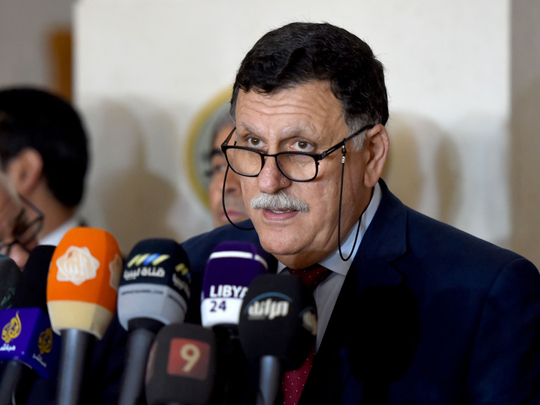
Last Wednesday’s confirmation by the French Ministry of Defence that three Special Operations officers were killed in Libya when their helicopter was downed by extremists during a ‘reconnaissance mission’ is a very serious admission that France has been meddling in the country again. An admission that runs contrary to the oft-repeated assertion from Paris that the country has no military presence in Libya.
Five years ago, the Libyan people were demonstrating in huge numbers demanding a foreign intervention against the Muammar Gaddafi regime. Now, paradoxically, large crowds are venting their fury against the French (although the French are not alone in having special operation forces in the country) who have returned to their country, not by the front door, but through the window.
Having spearheaded the intervention that toppled Gaddafi and ushered in five years of utter chaos as well as the black flags of Daesh (the self-proclaimed Islamic State of Iraq and the Levant) one would have thought France would have been extremely reluctant to interfere once more. Especially in a way that is guaranteed to exacerbate rather than heal the breach between the newly installed, UN-brokered, national unity government in Tripoli — led by Prime Minister Fayez Al Sarraj — and the elected parliament, known as the House of Representatives (HOR), which was forced to relocate from Tripoli to the eastern city of Toubruk when violently usurped by the ‘National Salvation government’ a third, largely Islamist, administration.
When Al Sarraj and his Presidential Council arrived by sea in April (they were refused permission to fly from self-imposed exile in Tunis by the elected parliament) they were unable to progress beyond the Bu Sitta naval base, just outside Tripoli; and here they remain in what has become a Baghdad-style ‘green zone’. A few days after this undignified entrance, Al Sarraj was visited by the foreign ministers of France, Germany and Britain offering their unequivocal support to his new government.
Only three months later, it seems, the West has decided Al Sarraj may not be up to the task and has been casting around for a safer pair of hands to uphold its security and oil interests, both under imminent threat from Daesh, which has established a stronghold in Libya.
What a surprise, then, when leaked tapes in June appeared to confirm an allegation made first in Le Monde in February (and vigorously denied by the Elysee) that French Special Operations personnel were at work in eastern Libya.
The tapes emanated from a huge French-run, high-tech, military operations room in the Banina airbase near Benghazi whose purpose is to gather intelligence through reconnaissance aircraft and co-ordinate air strikes.
Challenged just one week before the helicopter crash, Bernard Bajolet, the head of the French secret service — the Direction Generale de la Securite Exterieure (DGSE) — maintained that he was “completely opposed” to any military intervention in Libya, which he said would be “the best way to unite the Libyan people against us”. And so it has.
Nor is the intervention limited to surveillance it appears: the Benghazi Defence Brigade, the Islamist group that has claimed responsibility for downing the helicopter, alleges that French war planes subsequently bombarded its positions, killing 13.
But whereas the elected parliament knew full well what the French and their allies were up to, the hapless Sarraj was taken by surprise and, writing on Facebook, complained that, “Nothing justifies an intervention without our knowledge and without coordinating with us”.
It is very difficult to unravel the West’s agenda in this matter. Ostensibly it has two aims:
1. To prevent Daesh from expanding in Libya and, ultimately, to remove it altogether from a coastline which is only 300 miles (482km) away from Europe.
2. To support and protect Sarraj’s UN-backed unity government.
Perhaps the Libyan file is just so complicated that the French security establishment has lost the plot — after all, it somehow allowed a 19-tonne lorry to hurtle down the Promenade des Anglais when it was blocked to traffic, and on a day when heavy goods vehicles were banned from travelling throughout the whole of France, with catastrophic consequences for the 84 who died under its wheels, the 200 wounded and all who were bereaved, traumatised and terrified.
An alternative explanation is that the West wishes to keep Libya in a state of turmoil and chaos along with Syria and Iraq in order to avoid the resurgence of strong national armies opposed to its long term economic and geopolitical interests.
I leave you to make up your own mind.
Abdel Bari Atwan is the editor-in-chief of digital newspaper Rai alYoum. You can follow him on Twitter at www.twitter.com/@abdelbariatwan.










